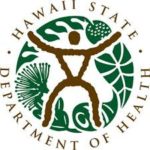The Hawaiʻi State Department of Health (DOH) is advising travelers and residents to be on alert for measles, as international and continental U.S. outbreaks continue to increase.
On January 26, 2024, DOH sent an advisory to physicians reminding healthcare providers to be vigilant.
The best way to prevent measles is to get vaccinated with the measles-mumps-rubella (MMR) vaccine. DOH encourages everyone to check their records and contact their healthcare provider if they need to be immunized. Before international travel or travel to areas experiencing a measles outbreak, infants ages six through 11 months should receive one dose of MMR vaccine. Children ages 12 months and older, as well as teenagers and adults without evidence of immunity should receive two doses of MMR vaccine separated by at least 28 days.
MMR coverage rates have dropped among children globally, nationally, and locally here in Hawai‘i since pre-pandemic years. Based on recent data from the Centers for Disease Control and Prevention (CDC), Hawai‘i’s 2022-2023 kindergarten coverage rate is estimated to be 86.4%, which is nearly 10% lower than the 95% coverage level recommended for community protection. Hawai‘i had the largest increase in non-medical kindergarten vaccine exemptions nationally from 2021-2022 to 2022-2023. Staying up to date on routine vaccinations is an effective way of protecting our families and the larger community from measles outbreaks.
Measles was declared eliminated in the United States in 2000, but remains a very contagious disease that is caused by a virus which spreads through the air when an infected person coughs or sneezes. Symptoms start with a fever, followed by cough, runny nose, and redness in the white parts of the eyes. Then a rash of tiny, red spots breaks out.
Measles can cause serious health complications, especially in children less than a year old, pregnant individuals, and persons who have a weakened immune system.
More information about measles is available at https://www.cdc.gov/measles/index.html.
